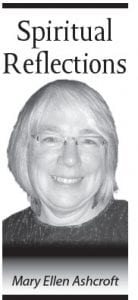Here in Cook County, conversations often drift toward the practical—outhouses, composting toilets, etc. I’ve heard people complain that you can’t just put in an outhouse anymore. No more digging a hole in the woods, putting your outhouse over it and using it. Gone are “the good old days,” before it became complicated to dispose of our waste.
I was thinking about outhouses when I helped paint masks for the rally to send Frank Moe off to St. Paul to protest sulfide mining.
I was also thinking about outhouses when I heard the story on MPR about the pattern of statutory rape of teens in Cook County.
I realized: what we need is an outhouse spirituality. Not an “old outhouse” mindset that was notable for evading responsibility for your own stuff. That “old outhouse” mode has long been characterized by phrases like: “Everybody’s doing it.” “All the girls want is a shiny truck.” “It’s not a big deal.” “The love had disappeared from our relationship.” “Really, I think they like it.” “I’m careful where I dig my hole.”
The “old outhouse” world seemed fine. It was a world in which we could forget our stuff. We could hold down a little shiny handle, and “presto-chango”—it disappeared as if we’d never done it at all. In the “old outhouse” world we believed we could just walk away—from our waste, our commitments, our debts, our pollution, our abuse of the weak.
Yes, the “old outhouse” world seemed good—but it can’t last. Someone will have to clean up after you, after me. My grandchildren will have to live on an over-heated planet, with mining waste and polluted ground water from sewage. They will know people whose lives have been hurt by sexual abuse. They will have to live with decisions to walk away from secure, committed relationships.
Working for years with college students I came to believe this is the best definition of maturity: “Knowing there’s a morning after the night before.” How late you stay up, what you drink, who you get cozy with—these will matter the next day, even if you wish they didn’t or if you can’t remember what happened.
We are called to grow up, to accept responsibility for our lives. One of the reasons certain kinds of religion can be so unhealthy is that they mirror a college student approach—go ahead and pollute all you want, despise the poor because there is no tomorrow—you will be raptured away.
The “old outhouse” mentality must be changed to a “new outhouse” ethic.
What would the world be like if we all “owned” our stuff—if we pledged to accept responsibility for our excrement, our pollution, our promises, our sperm, our words?
Spirituality at its best is a commitment to reality and a responsible choice to live out of that reality. It is a call to maturity, a call to grow up, a call to keep our promises. In his letters Paul constantly challenges the new Christians to grow up and take responsibility as they live their faith. “You will reap what you sow,” he writes to the Galatians.
Jesus calls his followers to count the cost before taking up the cross. Many religious movements have asked their members to take a vow of stability— in other words a promise not to just “move on.” This is based on a belief that living with the consequences of your actions is an important component of spiritual depth.
Some have said character can be defined as what we do when no one is looking. I think that’s challenging for all of us—after all, most of us prefer to “cut ourselves some slack” while holding others to high standards. The strong personal responsibility of this “new outhouse” attitude runs counter to the “old outhouse” one, that assumed we could pollute, walk away from those we’ve hurt; live as if there’s no tomorrow.
In “The Parable of the Talents,” Jesus tells a story of servants who are judged for their stewardship, how they look after what they’ve been given. In that story, the servant who gets in trouble is the one who is scared and buries his talent in the ground. An “old outhouse” mentality told us we could stick it in the ground and pretend it wasn’t there. In our “new outhouse” spirituality, we become responsible stewards of all that with which we’ve been entrusted. Each month a member of the Cook County Ministerium will offer Spiritual Reflections. This month’s s contributor is Mary Ellen Ashcroft, Vicar of Spirit of the Wilderness Episcopal Church.



Loading Comments